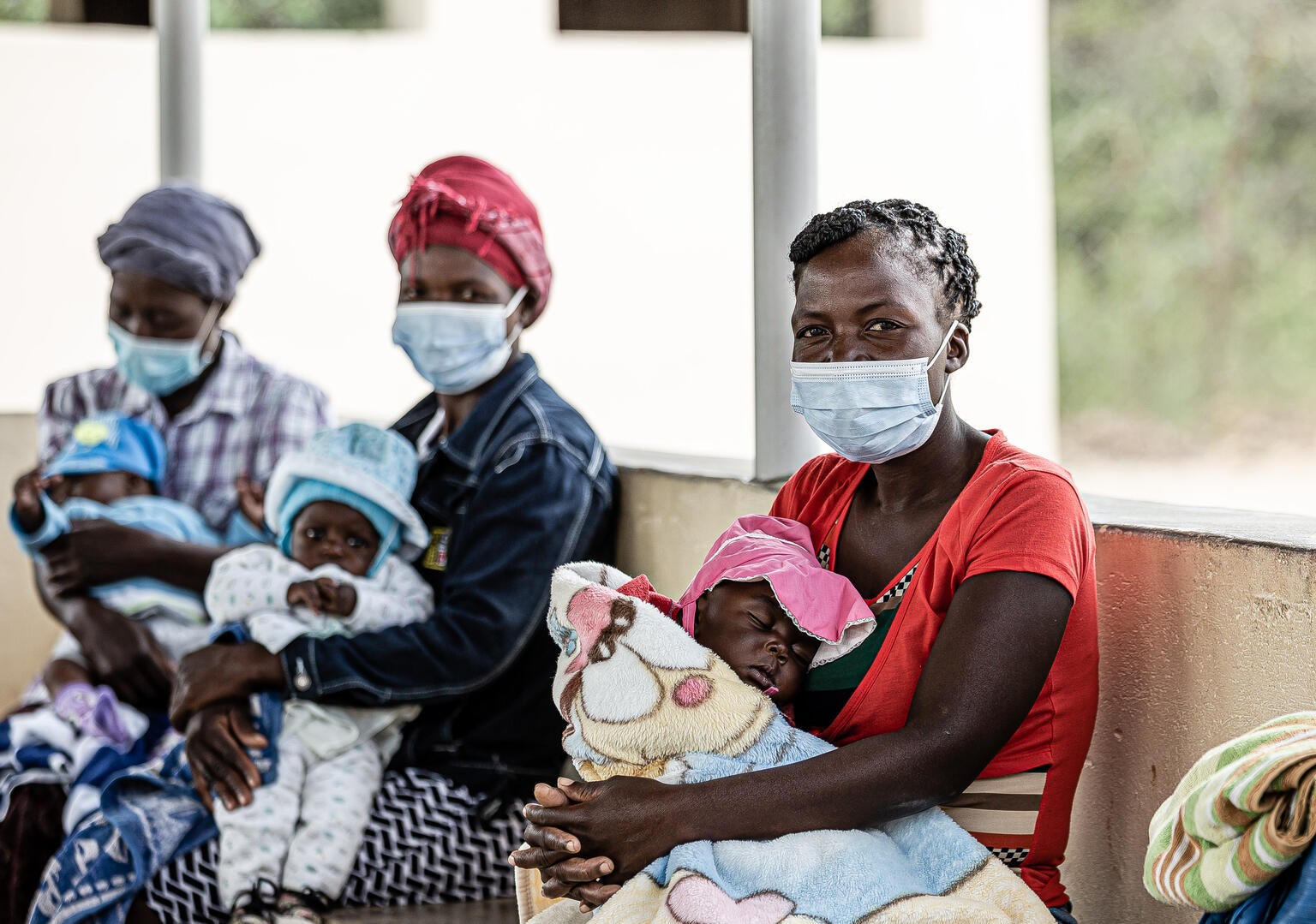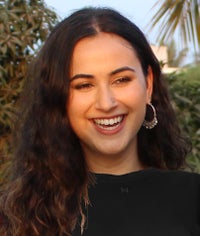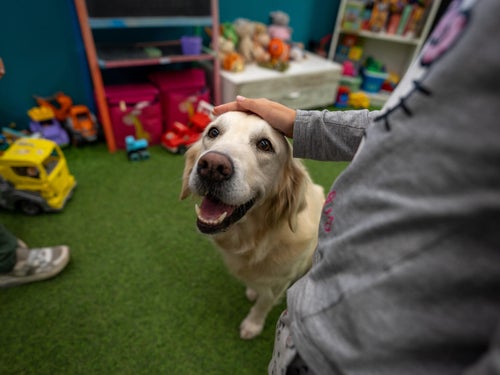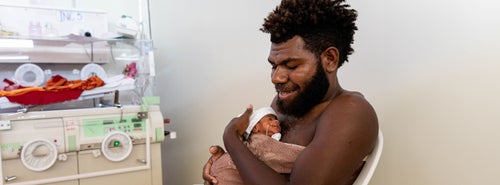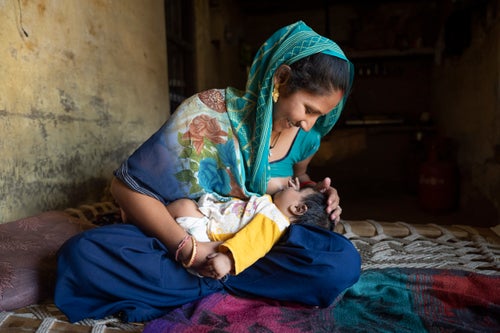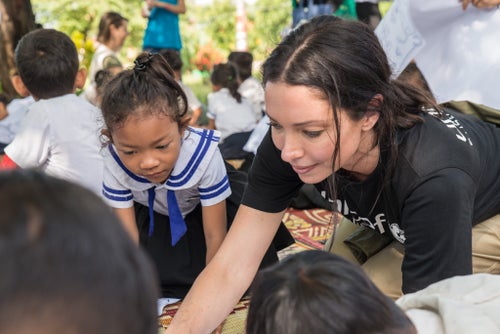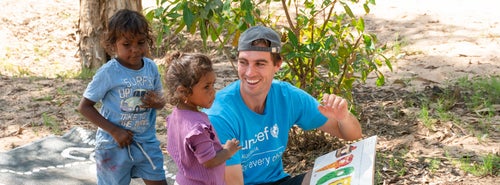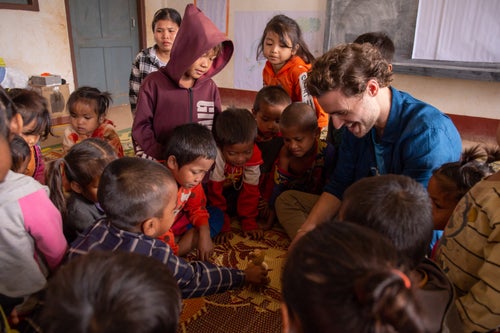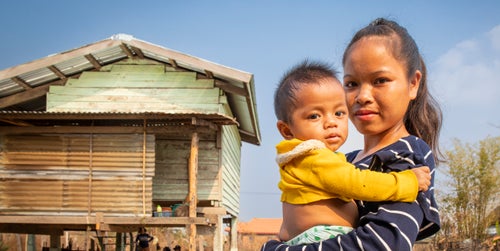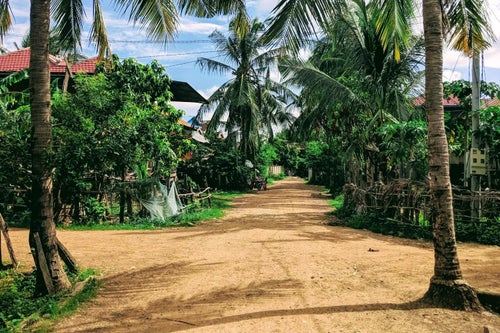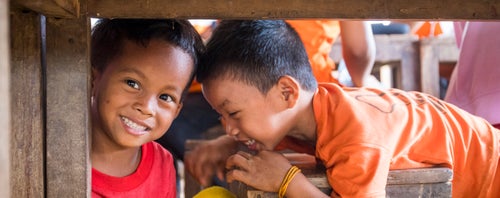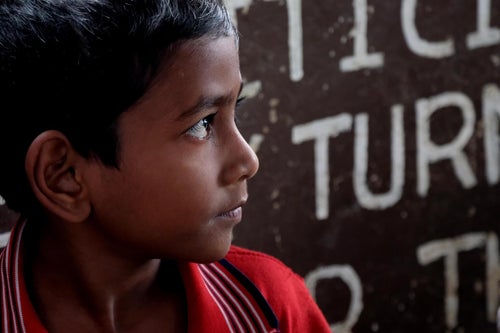At 36 years old, Maria has suffered a loss no woman should have to go through.
Trigger warning: this story contains depictions of miscarriage.
Maria, from a small rural, Apostolic faith-based community in Zimbabwe, was understandably emotional when sharing her story with our teams earlier this year.
Just a few years ago, Maria had gone through a painful and devastating traditional birth experience that led to the loss of her child – and almost her life.
“Delivering a baby at home can be a life-threatening experience for many women like us hindered from accessing safe delivery services due to our religious beliefs,” says Maria.
“I delivered my children at home with the assistance of traditional birth attendants. This is normal for us who belong to my church.”
In communities like Maria’s in Zimbabwe, traditional attendants are still commonplace. Some of these communities openly object to modern health care services, medicines, and immunisation.
This results in misinformation on health care and potentially harmful birthing practices. Many women like Maria have never experienced a safe health facility delivery due to mistrust of modern medicine.
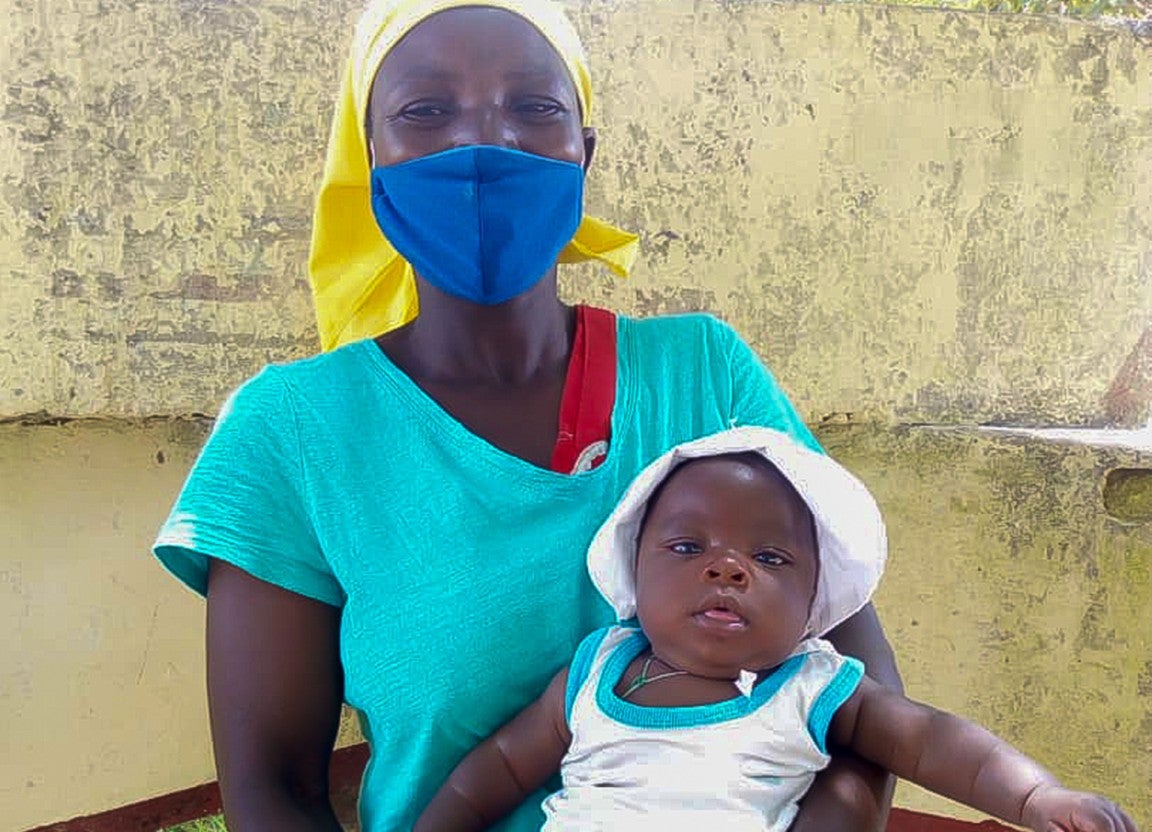
Two years later, once Maria was ready to try again after struggling with the trauma of her tragic loss, she conceived again. With the celebration of the happy occasion came fear and apprehension.
“I was stressed and often imagined that I would die and leave my other children,” Maria told our teams.
Since Maria’s last birth experience, UNICEF-trained Village Health Workers (VHW) have been embedded within Maria's community as part of a UNICEF Australia community intervention and empowerment program.
These workers took part in community outreach, helping to increase knowledge and awareness of maternal, newborn, and child health and other important social issues.
With the reassurance of this UNICEF Australia intervention, Maria felt compelled to try a safer delivery option and received an early antenatal booking at a health care facility.
"I felt empowered and confident to make decisions about my sexual reproductive health"
Maria explained, "The Village Health Workers selected from within our religious sect came to our community and shared with us the benefits of early antenatal bookings and facility deliveries, specifically on safe delivery and childcare."
“Hearing the message from one of our own, I felt empowered and confident to make decisions about my sexual reproductive health.”
She visited her local clinic for antenatal care for the first time and received counselling. With the presence of qualified and experienced birth attendants and health workers, safe deliveries are now possible.
Maria is among more than 7,000 pregnant women reached with the VHW’s education activities in Mashonaland Central last year.
“When I was nearing my expected delivery date, my husband took me to the main town, together with my youngest children, to stay with his sister close to the hospital,” says Maria
“He was also worried considering my previous birth experience. He kept praying for me and the baby.”
“I became motivated after my first delivery experience at the health facility and made regular visits, to ensure that all my children get other services such as vaccinations, which my other children did not get before.”
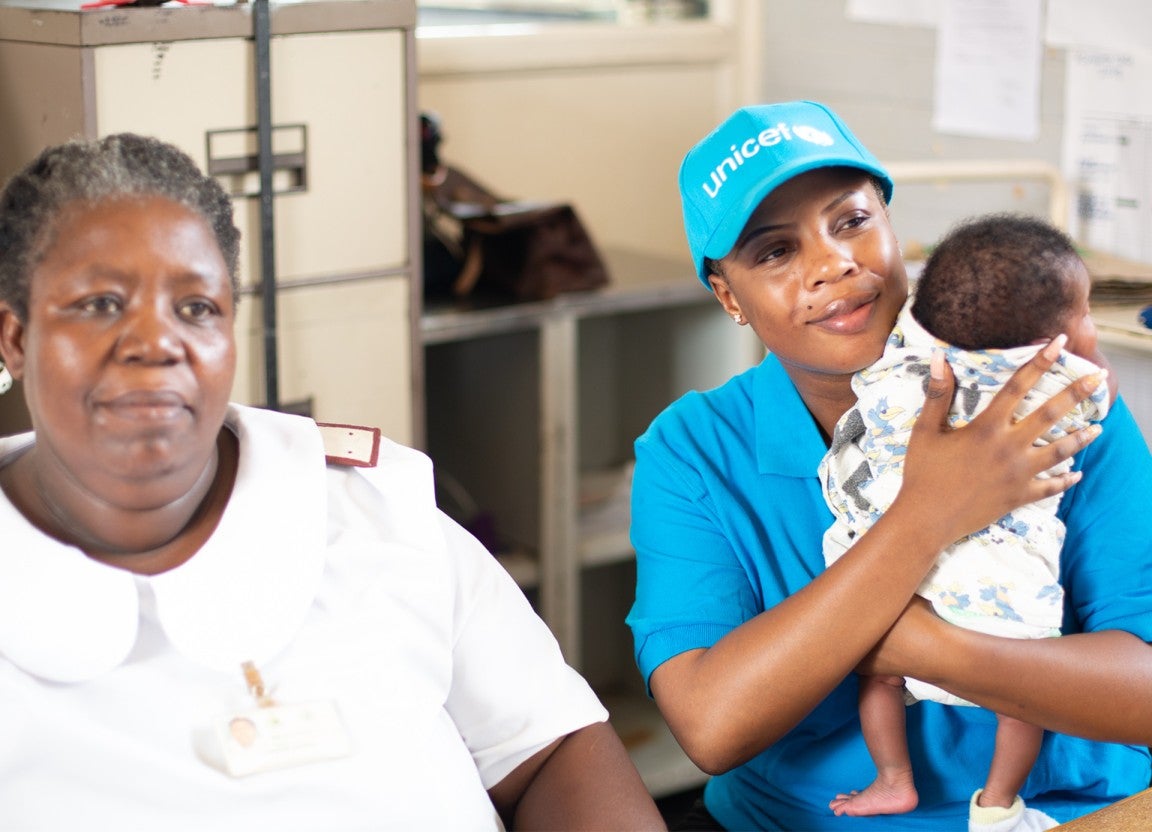
Maria safely delivered a happy baby and sibling to her children at the local hospital. Now a few months later, Maria is a passionate community active advocate for young women within the Apostolic sect to register early for antenatal care.
She wants women to feel comfortable to deliver their babies in the facility, and to access health care services to keep their families safe from diseases.
"I feel happy that my child is healthy. The services are good at the hospital. At home I would deliver on a dirty sack, the traditional birth attendants would use unsterilized and unsafe birthing instruments."
"This time I had all the support from the nurses, and I felt at ease compared to what I used to go through while delivering at home."
Maria let our teams know to pass on the message to other women struggling to be supported by their communities to have happy and safe deliveries. She wants mothers all over her country to know that it is okay to say no to risky and potentially harmful birth practices.
Maria wants women to feel empowered to visit health facilities and avoid the devastating experience of families losing their mothers, sisters and friends, particularly mothers losing their child.
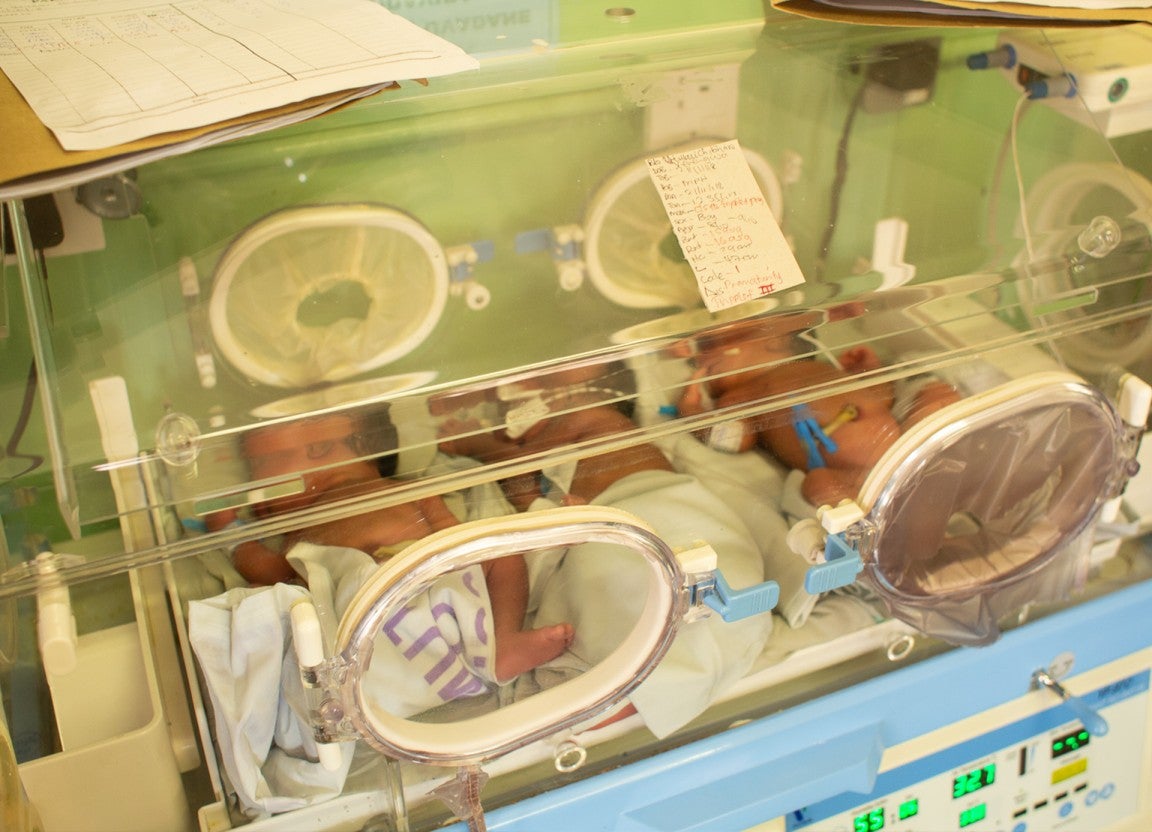
Thanks to generous people like you, UNICEF Australia help bring Maria’s life-saving message to life. She is one of the thousands of women who were directly supported by Australians and the Australian NGO Cooperation Program (ANCP).
Since the 1990s the global child mortality rate has more than halved, and the new-born mortality rate has almost halved,
“It's an amazing result to bring in interventions, like those in Maria’s community, and to have this change." says Bethany Stirling, International Programs Coordinator and Child Survival Specialist at UNICEF Australia.
"These interventions and services are such a big priority for UNICEF and UNICEF Australia because these are preventable losses of life. If we work together, we can make a difference."
One of UNICEF’s key partners – the Apostolic Women Empowerment Trust (AWET) is providing support through engaging hesitant communities to address social norms that hinder young women and girls from uptake of maternal, neonatal, and child health services.
The group is also working on changing behaviors in Apostolic communities around COVID-19 prevention as well as prevention of Gender Based Violence and access to local emergency C-Section services to mothers who experience birth complications.
Thanks to services like these, mothers like Maria, her sisters, friends and daughters can have hope for their own and their children’s happy futures.
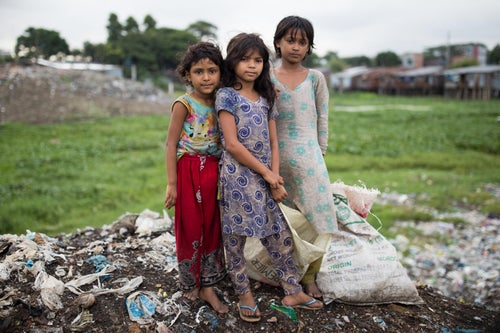
Donate Where the Need is Greatest
Help UNICEF to be there for children wherever the need is greatest, no matter what.
Related articles
Stay up-to-date on UNICEF's work in Australia and around the world



